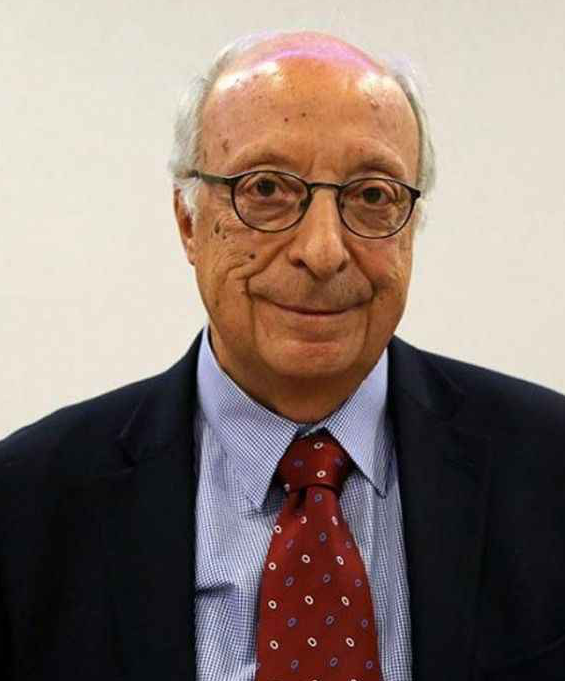
Gazze'de adalet arayışında Türkiye
Uluslararası Adalet Divanı'nın (UAD) 26 Şubat 2024 tarihli toplantısına, Türkiye Dışişleri Bakan Yardımcısı Ahmet Yıldız başkanlığında bir heyetle katıldı ve görüş bildirdi.
Her şeyden önce şunu belirtmek gerekir: Türkiye'nin bildirdiği görüş Gazze olayları ve UAD'ın önündeki İsrail/Güney Afrika davası ile ilgili değildi. B.M. Genel Kurulu'nun 30 Aralık 2022 tarihinde Kabul ettiği ve "İsrail'in, Doğu Kudüs dahil olmak üzere, işgal ettiği Filistin topraklarındaki Filistin halkının insan haklarını etkileyen uygulamaları" başlığını taşıyan karardaki istişari görüş talebiyle ilgili olarak Türkiye görüş bildirdi. Bu kararda B.M. Genel Kurulu UAD'dan istişari görüş talep etmekte ve UAD'a iki soru sormaktaydı. Bunlardan birincisi, İsrail'in Filistin halkının kendi kendini yönetim (self determination) hakkını ihlal etmesi ve Kudüs'ün statüsünü değiştirmeyi amaçlayan önlemler almasına; ikincisi de bu uygulamaların işgalin hukuki statüsünü nasıl etkilediğine ilişkindi. Türkiye'nin bildirdiği görüş, B.M. Genel Kurulu'nun UAD'dan istişari görüş talebine ilişkin sorularla ilgiliydi. Bu konuda Türkiye gibi görüş bildiren 50'yi aşkın devlet bulunmakta.
Nasıl ki, Türk Heyeti'nin yaptığı konuşmada ağırlıklı olarak, Filistin halkının haklarının ihlal edildiğine, İsrail'In hukuk dışı davranışlarına, Kudüs'ün ve Kudüs'teki kutsal yerlerin statüsünün değiştirilmesine değiniliyor. Konuşmadan Türkiye'nin daha önce bir de yazılı görüş verdiği anlaşılıyor.
UAD'ın B.M. Genel Kurulu'na İsrail-Filistin anlaşmazlığı konusunda vereceği istişari görüş ile ilgili olarak bölgedeki en büyük devlet olan Türkiye'nin görüş bildirmesi doğru bir davranış, anlaşılır bir tutum. Anlaşılmayan, Türkiye'nin neden Güney Afrika'nın İsrail'e karşı açtığı ve halen UAD'ın görmekte olduğu soykırım davasına müdahil olmadığı.
Gazze'de İsrail'in yaptığı katliam, Türk kamuoyunda büyük bir tepkiye yol açtı. Israil'i protesto eden yürüyüşler, toplantılar yapıldı. Başta Cumhurbaşkanı olmak üzere Hükümet yetkilileri İsrail'i kınayan konuşmalar yaptılar. Gazze katliamı Türk dış politikasının önde gelen konularından biri oldu. Cumhurbaşkanı "Türkiye'de Gazze'de görev üstlenmeye hazırdır." dedi. Bundan anlaşılacağı gibi Türkiye Gazze sorununda aktif bir rol oynamak istiyor. Barış görüşmelerine katılmak, barışın garantörlerinden biri olmak çabasında. O zaman Türkiye'nin UAD'da görülmekte olan davaya müdahil olması gerekmez miydi? Ama Türkiye bunu yapmadı. Oysa davaya müdahil olsa, yazılı ve duruşmalara katılarak sözlü görüş bildirmek hakkına sahip olacaktı. Soykırım konusunda görüş açıklayarak UAD'I etkilemek olanağını bulacaktı. Ama Türkiye bu olanağı kullanmaktan kaçındı.
UAD'da görülmekte olan bir davaya üçüncü bir devletin müdahil olması UAD Statüsü'ne göre, iki farklı yoldan gerçekleşebilir. Statü'nün 62. Maddesine göre UAD'ın kararından etkilenecek bir hukuki çıkarı bulunan ülke, davaya müdahil olmayı talep edebilir. UAD bu talebi kabul edebilir ya da reddedebilir.
UAD, "hukuki çıkarın etkilenmesi" kriterini yorumlarken eşiği yüksek tuttuğundan bu yoldan davaya müdahil olmak güçtür. Birçok davada UAD'nın, davaya müdahil olma talebini reddettiği görülmektedir.
Davaya müdahil olmanın başka bir yolu, UAD Statüsü'nün 63/2 maddesinde düzenlenmiştir. Buna göre, UAD'da görülmekte olan dava bir uluslararası sözleşmenin yorumuyla ilgiliyse, UAD Yazmanı bunu sözleşmeye taraf bütün devletlerin bilgisine sunar. Bu bilgilendirmeyle, Sözleşme'ye taraf bütün devletler davaya müdahil olma hakkına sahip olur. Bu durumda devletlerin müdahil olması UAD'ın kabulüne bağlı değildir. Sözleşmeye taraf devletlerin tek taraflı irade beyanı yeterlidir.
63/2 maddesinin dayandığı düşünce açıktır. Sözleşmeyle ilgili bir UAD kararı sadece davaya taraf iki devleti değil, emsal yaratarak Sözleşme'ye taraf bütün devletleri etkileyecektir. O nedenle bütün taraf devletlere, bir hukuki çıkarları olup olmadığına bakmaksızın, davaya müdahil olma olanağı verilmiştir. Bu seçenekte amaç sadece sözleşmeye taraf devletleri değil, aynı zamanda sözleşmeyi de korumaktır.
Müdahil olan devletin yazılı ve sözlü görüşlerinin taraf oldukları Sözleşme'yle sınırlı olması gerekiyor. Sözleşme dışındaki görüşler UAD tarafından dikkate alınmıyor. Esas aşamasına geçilmeden ön itirazların görüşüldüğü, kabul edilebilirlik aşamasında da müdahil olma olanağı var. Müdahil olma talebine taraf devletlerden biri itiraz edebilir. O zaman UAD'ın bu itirazı bir karara bağlaması gerekiyor. Örneğin, UAD'da açılan Ukrayna-Rusya Federasyonu davasına 33 devlet Ukrayna'dan yana müdahil olmak istemiş, Rusya buna itiraz etmişti. UAD Rusya'nın itirazını görüştü ve reddetti.
Davaya müdahil olmak davaya taraf olmak anlamına gelmez. Ancak 63/2 gereğince müdahil olan devlet, UAD'ın sözleşmeye ilişkin yorumuyla bağlıdır.
Soykırım Sözleşmesi'nin ihlal edildiği savıyla UAD'da açılan davalarda Sözleşme'ye taraf devletlerin Statü'nün 63/2 maddesi gereğince davaya müdahil olmaları son zamanlarda sık görülen bir durum. Gambiya/ Mynmar davası UAD'da görüşülürken Sözleşme'ye taraf Almanya, Danimakara, Fransa, Hollanda, İngiltere ve Kanada, 2023 Kasım ayında davaya Gambiya tarafından müdahil oldular. Aynı şekilde Ukrayna/ Rusya davasında, Soykırım Sözleşmesi'ne taraf 33 devlet davaya müdahil oldu.
Güney Afrika İsrail'e Soykırım Sözleşmesi'ni ihlal ettiği savıyla dava açtı. Almanya davaya İsrail'den yana müdahil olacağını açıkladı. Türkiye de Soykırım Sözleşmesi'ne taraf devletlerden biri. Dolayısıyla Statü'nün 63/2 maddesi gereğince taraf olmaya hakkı var. En azından Gazze sorununa verdiği önemle tutarlı olmak, bu konudaki beyanlarına inandırıcılık kazandırmak için müdahil olma hakkını kullanmalı. Ancak Türkiye'nin davaya müdahil olacağını gösteren bir işaret yok. Bu durum Türkiye'nin Gazze konusunda söyledikleriyle yaptıkları arasında bir çelişki yaratıyor.
Bu çelişkiye yol açan en olası neden Türkiye'nin Ege kıta sahanlığı sorunun bir UAD kararıyla çözümlenmesinden duyduğu geleneksel endişe. Türkiye, bu konudaki bir UAD kararının aleyhine olacağını düşünüyor. Güney Afrika/ İsrail davasına müdahil olmasının UAD'ın yetkisini tanıdığı gibi yorumlanmasından çekiniyor.
Müdahil olmak konusundaki isteksizliğin gerekçesi buysa, bu endişeye yer olmadığını belirtmek gerekir. Bir kere, bu davada Soykırım Sözleşmesi'ne taraf olmaktan doğan bir hakkın kullanılması söz konusu. Bu Sözleşme'ye taraf olmakla Türkiye UAD'In yetkisini zaten tanımış durumda. Ama bu sadece Soykırım Sözleşmesi'nden doğan anlaşmazlıklarla sınırlı. Bu Sözleşme'den doğan hakkın kullanılmasının, Ege Kıta Sahanlığı sorunuyla ilgili olarak UAD'ın yetkisini tanıdığı gibi bir yoruma yol açması olanaksız.
Ayrıca Ege Kıta Sahanlığı sorununun Türkiye ve Yunanistan'ın anlaşmasıyla UAD'a getirilmesi ve UAD'ın "hakkaniyet" ölçütüne göre bir sınırlandırma yapması durumunda kimin kazançlı çıkacağı çok tartışmalı. Büyük bir olasılıkla iki tarafın da kazançlı çıkmayacağı bir çözüm olacak.
Türkiye'nin Gazze konusunda söylediği sözlerin inandırıcı olabilmesi için somut bir eylemle desteklenmesi gerekir.
Her şeyden önce yapılması gereken Türkiye'nin Gazze ile ilgili olarak UAD'ın önündeki davaya müdahil olmasıdır. Burada Türkiye'nin sahip olduğu bir hakkın kullanılması söz konusudur. Türkiye bu hakkı kullanmadığı sürece söylenen sözler inandırıcı olmaktan uzak kalacaktır.
Bunun yanında Gazze katliamını heyecanlı bir biçimde proteste eden kalabalıkların, kamuoyunun bu konuda iktidar üzerinden anti-semitizme kaymadan baskı yapması gerekir.
Türkiye'nin elinde Gazze konusunda ne denli ciddi olduğunu göstermek için önemli bir fırsat vardır. Bu fırsatın kullanılmamasının söylenen sözlerin ciddiliği konusunda ulusal ve uluslararası kamuoyunda soru işaretleri doğurması kaçılmazdır.
